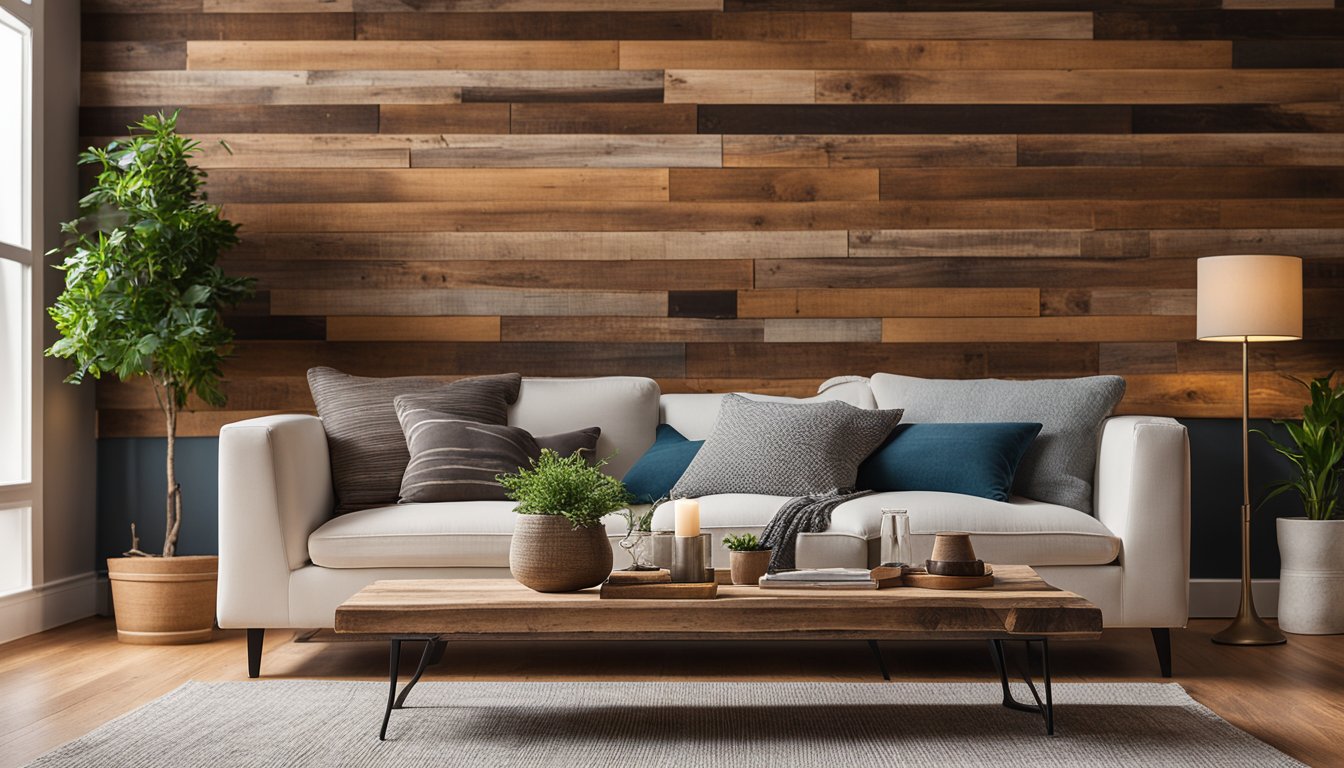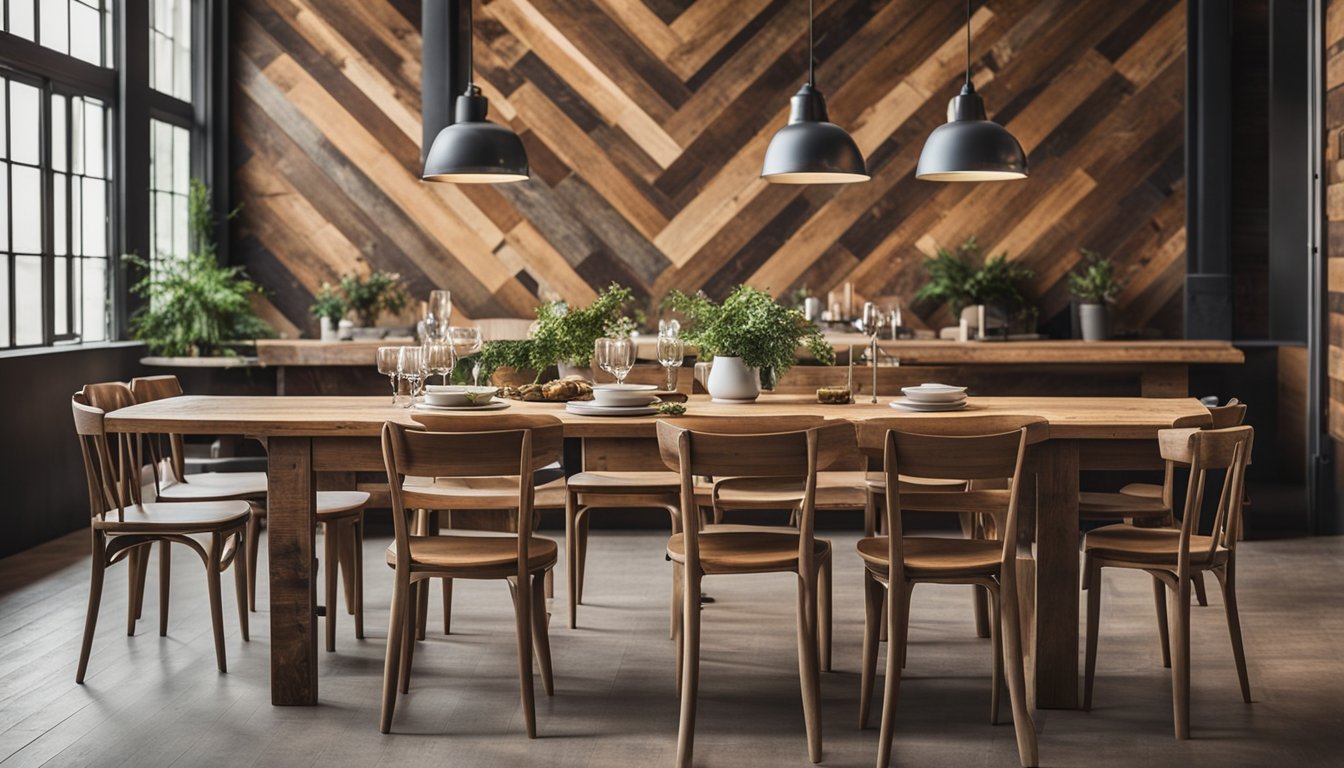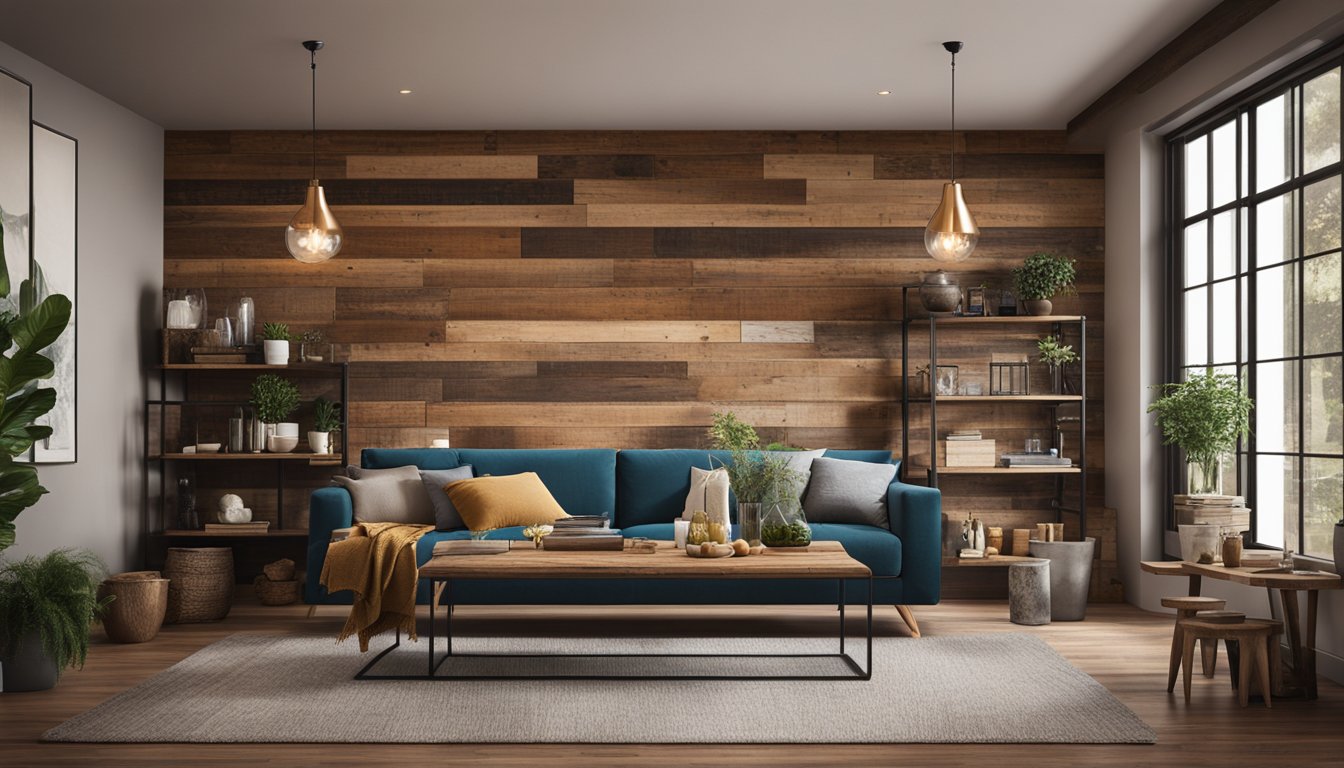Late updated: 28 Oct 2024 15:10
Written by: Daniel Harper
Creative Ways To Use Reclaimed Wood: Transform Your Home with Eco-Friendly Design
Incorporating reclaimed wood into our homes is more than just a trend—it's a creative statement that fuses sustainability with style. By repurposing salvaged wood, we not only add rustic charm and character to our decor but also embrace an environmentally friendly lifestyle. Whether it's a bespoke kitchen centre island or a statement dining table, these pieces carry with them a piece of history, enriching our living spaces with their unique stories.

The versatility of reclaimed wood allows us to use it both structurally and decoratively, supporting a myriad of interior design possibilities. This unique material brings an unmatched warmth and texture, making it a favourite choice for creating bespoke items such as coat racks, shelves, and countertops. By up-cycling, we're not only reducing waste but also displaying our commitment to eco-friendly practices.
Reclaimed wood ensures that each project remains unique and full of character. The distinct textures and varied hues of the wood tell tales of its previous life, inviting conversation and admiration. As we explore different ways to incorporate this timeless material, our homes transform into a beautiful blend of past and present.
Key Takeaways
- Reclaimed wood combines sustainability with unique style.
- Its versatility enhances both decorative and structural home elements.
- Each piece adds a distinct character and historical appeal to interiors.
Designing with Reclaimed Wood
When designing with reclaimed wood, we explore the versatility of this material in creating custom furniture, accentuating décor, and upcycling existing items for unique pieces. It brings character and eco-consciousness into our living spaces.
Creating Custom Furniture
Reclaimed wood is an excellent choice for custom furniture due to its durability and unique character. Each piece tells its own story, which contributes to a one-of-a-kind atmosphere.
Dining tables crafted from reclaimed barn doors become conversation starters. Coffee tables with rustic finishes add warmth and style to any living room. By collaborating with local craftsmen, we can ensure that each piece suits our specific design preferences while preserving the environment through sustainable choices.
Incorporating Wood Accents into Decor
Incorporating reclaimed wood accents enhances the aesthetic appeal of our homes. Shelving, mirror frames, and interior doors add texture and depth to otherwise plain spaces.
Wood accents such as a coat rack or an intricately designed wooden headboard provide functional beauty. A thoughtfully placed piece of reclaimed wood, like a well-crafted bench, can transform a hallway. These accents not only highlight the beauty of this material but also provide practical solutions for everyday living.
Upcycling for Unique Pieces
Upcycling with reclaimed wood is a resourceful way to create unique interior items. Serving trays made from old planks bring rustic charm to entertaining spaces. By converting discarded wood into a bookcase or a nightstand, we breathe new life into what might have been wasted.
Each upcycled piece serves a purpose while maintaining an environmentally friendly ethos. The utilisation of reclaimed wood for these projects not only reflects creativity but also aligns with sustainable living practices, making it a valuable choice for eco-conscious home design.
Structural and Functional Uses

Reclaimed wood offers unique possibilities for both structural innovation and functional enhancements in our homes. From crafting distinct interior structures to adding practical additions, the versatility of this material is unmatched.
Innovative Interior Structures
Reclaimed wood infuses character and warmth when used in innovative interior structures. Wood beams made from reclaimed barn wood can be installed in ceilings, offering a rustic charm while supporting structural integrity. Stairs are another area where reclaimed wood can leave a significant impact. By using old barn wood or scrap wood, we create treads and rails that exude elegance and durability. Headboards crafted from salvaged planks can transform bedrooms, providing a stunning focal point without compromising on sustainability. Each of these elements not only enhances the aesthetic appeal but also ensures the practical use of recycled materials.
Functional Additions Throughout the Home
Beyond structural uses, reclaimed wood serves various functional purposes around the home. Countertops and kitchen cabinets benefit greatly from this material, bringing an industrial look that blends style with usefulness. We can design a towel rack that is both charming and eco-friendly. Meanwhile, outdoors, a pergola constructed from recycled beams shields us from the elements while adding visual interest. From small DIY projects like these or large undertakings, reclaimed wood projects create stunning and practical solutions, embodying the spirit of recycling.
Frequently Asked Questions

In this section, we address common inquiries regarding the use of reclaimed wood in home design. This encompasses innovative decor ideas, crafting unique furniture, wood treatment methods, quality evaluation, environmental advantages, and preservation techniques.
What are some innovative approaches for integrating recycled timber into home decor?
Recycled timber can be creatively used in home decor through unique features such as accent walls, artistic wall panels, or statement kitchen centre islands. Its rustic character offers a unique aesthetic that can be tailored to both contemporary and traditional designs.
Is it possible to employ salvaged wood for creating unique furniture pieces, and how?
Yes, salvaged wood can be transformed into unique furniture. By leveraging its aged texture and patina, it can be crafted into dining tables, bookshelves, or coffee tables. Working with a skilled craftsman ensures that the furniture is both durable and visually appealing.
In what ways can reclaimed wood be treated and prepared for indoor use?
Proper treatment of reclaimed wood involves cleaning, sanding, and sealing. This process removes impurities and enhances its longevity. For indoor use, applying a suitable finish can protect the surface while maintaining its natural look.
How can one ascertain the quality and suitability of reclaimed wood for various home projects?
Assessing the quality of reclaimed wood involves checking for rot, infestation, or structural weaknesses. Consulting with professionals can ensure it meets specific project requirements, considering both aesthetic and practical aspects.
What are the environmental benefits of using reclaimed wood in home construction and design?
Using reclaimed wood reduces the demand for newly harvested timber, helping to conserve forests. It also cuts down on waste and energy consumption, making it a more sustainable choice for home construction and design.
How can vintage wooden materials be effectively preserved when repurposing for home use?
To preserve vintage wood, it is essential to store it in a dry, stable environment and treat it for pests. Regular maintenance and conditioning can keep it in excellent condition, ensuring it remains an attractive feature in the home.
